Tell us, why do we need the European Capital of Culture for Lviv, what does this status give us? And how do you apply for this competition?
This is a very important question, the answer to which — for ourselves and the community — marks the beginning of the city's possible history in competitions such as the European Capital of Culture, or ECoC. For the European Union, this is the highest-level programme in the field of culture, aimed at strengthening intercultural dialogue and bringing Europeans closer together, promoting a better understanding of their shared history and values, and showcasing the cultural diversity of the EU. The programme was launched in the 1980s by the Minister of Culture of Athens, Melina Mercouri, so it is already 40 years old. And it is truly top level.
A wide variety of cities took part in the competition, from capitals such as Berlin and Oslo to cities such as Glasgow and Liverpool, and even small communities. For example, last year the European Capital of Culture was the agglomeration of Bad Ischl (Austria), and in 2029 the Swedish city of Kiruna will receive the ECoC status. In other words, the landscape is as broad and diverse as possible. The competition has seen different concepts, rule changes and stages of development.
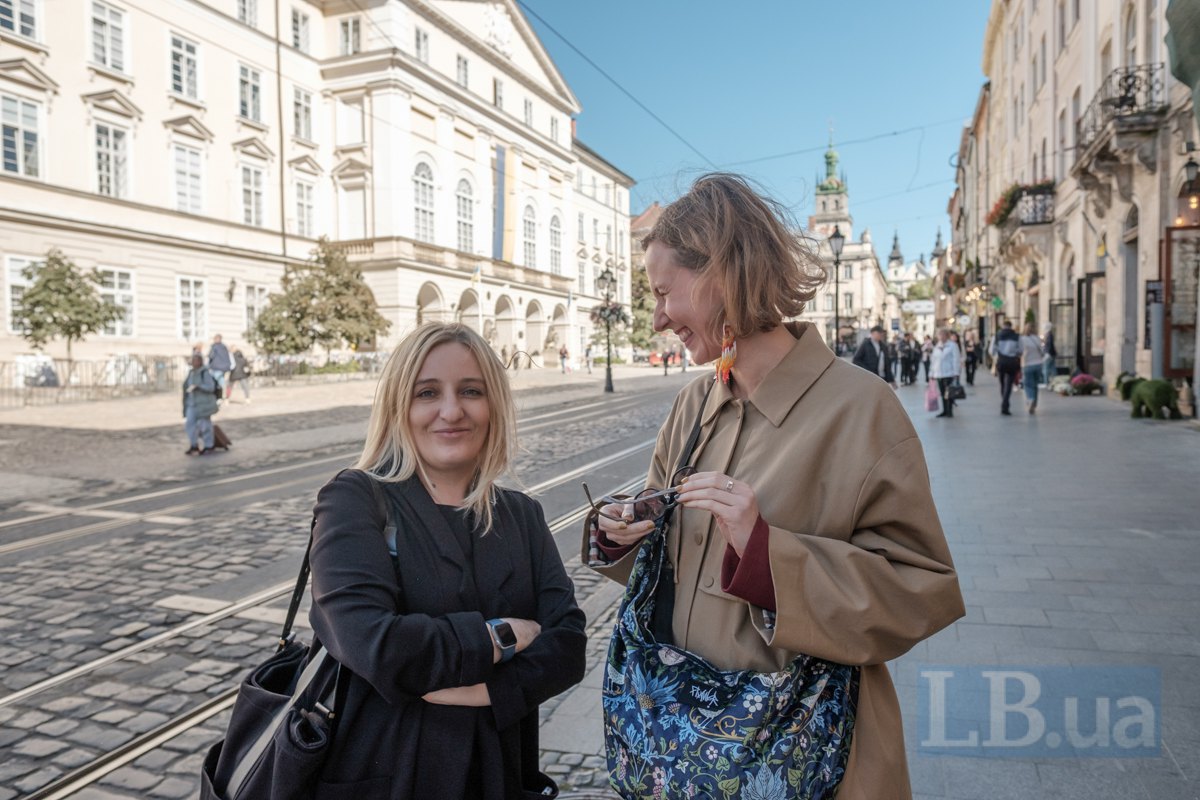
Various European cities with different concepts, ideas and capable teams compete in the ECoC competition. It is ambitious, but at the same time it is an opportunity to realise oneself as a city of culture, solve certain problems and transform one's cultural policies. The competition has seen both more and less successful cases. In my opinion, the most important thing for cities that win is to be able to implement this idea in such a way that it benefits the city, the community and the state at various levels.
For Ukraine, the ECoC programme was closed for a long time, and we could not apply. But in Lviv, as a city that is aware of its potential, we understood that sooner or later such an opportunity would arise, because our political vector is directed towards Europe, and our human aspirations are to share these very values. So, 15 years ago, we knew that we wanted to participate and that this chance would definitely come.
Why couldn't we apply before, but now we can?
About ten years ago, the European Union expanded the scope of the competition to allow countries outside the EU to participate. This is a very logical and organic decision, because European values extend far beyond its geographical borders. So, a separate lot was introduced for cities from countries outside the EU, in particular, countries of the European Economic Area, candidate countries and potential candidates for EU membership. Once every three years, an open call is announced for such cities. In the summer of 2022, Ukraine received the status of a candidate for EU membership, and in October 2023, the third year came — and Ukrainian cities received the right to apply! We in Lviv decided to apply as soon as the opportunity arose. We had been waiting for this opportunity for a long time.
Why? Because we know we have something to say. Because we know that both the application process and, of course, the ECoC title change cities. The ECoC programme requires each candidate city to develop, among other things, a plan for measuring its success, evolution and results of implementing the ECoC programme.
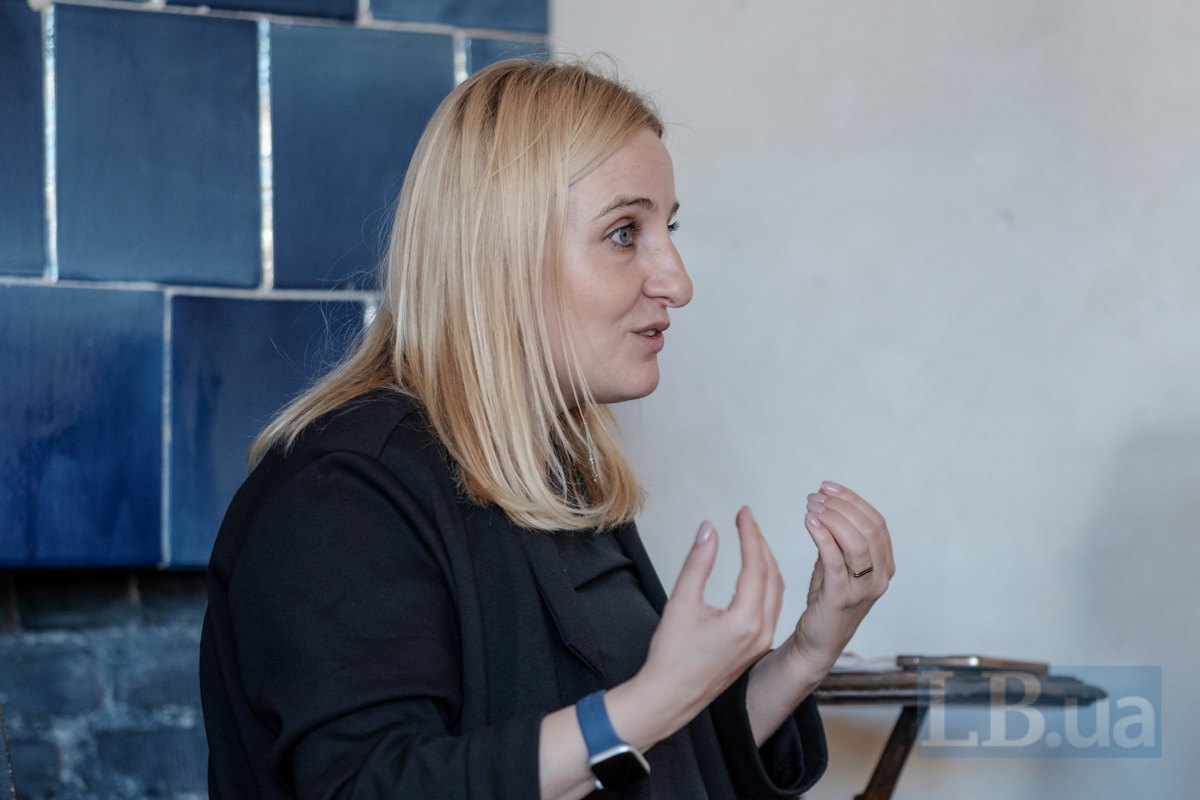
In cultural terms or in general?
In general. These can be quantitative and qualitative indicators. It must be specified who will study these effects, what methods will be used, and how this is linked to the concept. We also have our own evolutionary model, and we will study the impact of the ECoC title in three dimensions — cultural, social and economic — at the local, regional, national and international levels.
Each ECoC city is required to show these results in a report after the year of the title. One of the key evaluation criteria is the legacy that remains after the ECoC city has implemented its programme, which in fact covers not only the year of the title, but also the previous few years and the years after. Therefore, the city must think about the long term. The legacy can manifest itself in the creation of new institutions and environments, cultural policies, practices, approaches, partnerships and their networks, as well as in changes in the daily lives of the city's residents. However, Lviv also thinks in terms of certain changes at the national level.
Overall, participating in a competition of this scale is a real challenge for us. Ukraine has no experience in writing such applications. Lviv is the first. However, we have done a lot to get to this point, which was a prerequisite for participating in the competition.
And you can also be consultants for other Ukrainian cities.
Yes. If Ukraine does not join the European Union sooner, the next ECoC competition for EU candidate countries will be in 2033. If Lviv really wins — and I believe it will — then it is entirely possible that in 2033 another Ukrainian city will be able to benefit from our experience. For now, we are the pioneers.
How did the process begin when you decided to submit Lviv for the ECoC? How did this idea come about?
The idea to apply, when possible, came about at Dzyga (a cultural environment in Lviv where many artistic phenomena and movements originated — Ed.). It was there, at 35 Virmenska Street, that it was formulated by the late Markiyan Ivashchyshyn and Zenoviy Mazuryk — people who travelled extensively and brought new ideas to Lviv from around the world, and who already had international partnerships at that time.
In 2010, Poland applied for the title of ECoC for the first time — Lublin decided to apply. A proposal was made to submit an application together with Lviv — with the idea of Lviv as the "eastern gateway to Europe," around which a coalition of civil society organisations would gather. Thus, the L² project — two "L"s, Lublin and Lviv — appeared in Lublin's application.
Lublin lost at that time. The title of ECoC was won by Wrocław, with which we also had a partnership. So we did not give up, but instead partnered with the winning city, already understanding that this was a kind of preparation for our future application in this competition. With Wrocław — ECoC 2016 — we implemented the Lviv Month project: we moved Lviv to Wrocław for a whole month. In the city centre, there was a real Lviv street, where our life was in full swing and the Lviv vibe was felt: crafts, a book club, a literary programme with the presentation of the poetry anthology Letters from Ukraine. There was also a musical component: Dakh Daughters, Yuriy Andrukhovych, and the band Krykhitka. And a huge exhibition of contemporary art, Ukrainian Cross-Section, which presented dozens of Ukrainian authors in a five-story building. There was also a film club; at that time, Oleg Sentsov was in a Russian prison, and the entire film programme was held under the slogan Free Sentsov — it was an opportunity to draw attention to his political imprisonment.
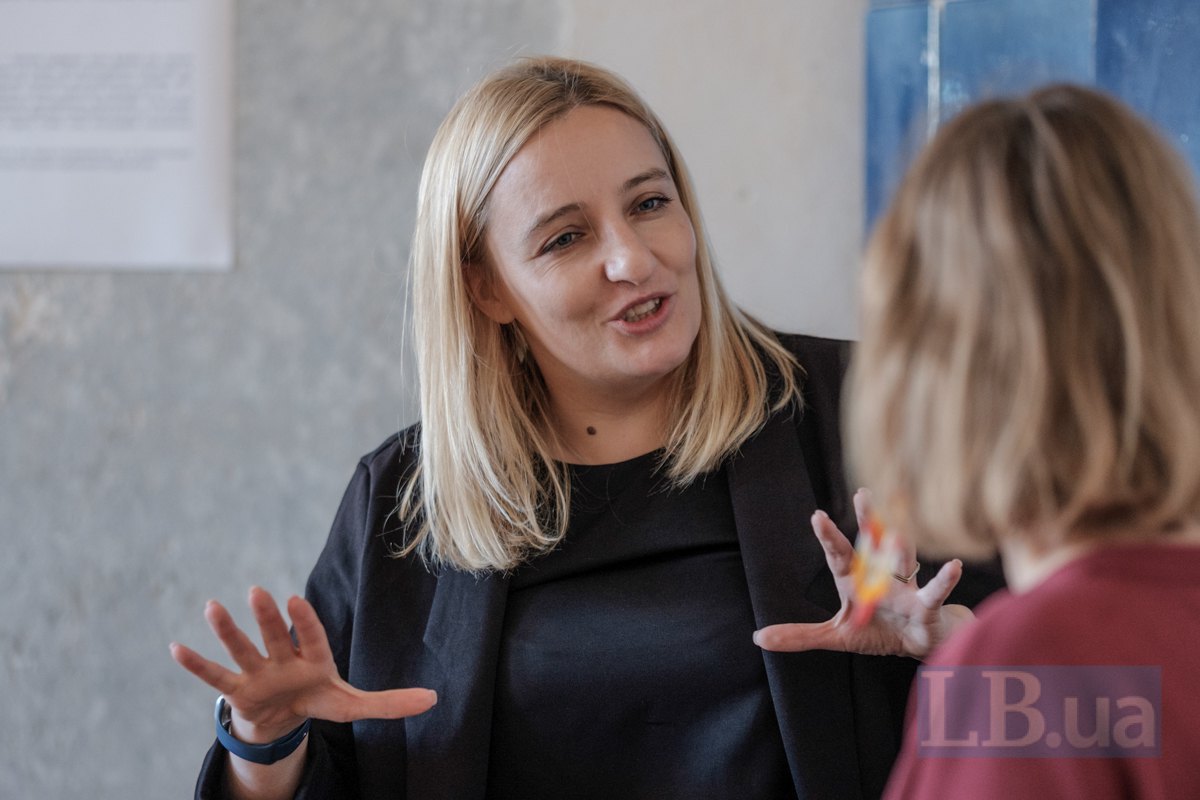
Since then, Lviv has been present in various European capitals of culture until it got the chance to apply on its own. We formed coalitions of partnerships, learned from those who had already implemented ECoC programmes, looked closely at ideas, and analysed how everything works from the inside. Thanks to other ECoCs, we were able to speak up and gain a voice. And now, when we think about what this status can give us, the first thing that comes to mind is the opportunity to speak on behalf of culture.
For a country fighting for its own subjectivity, independence and sovereignty, visibility and presence on such platforms are critically important. And the ECoC programme is a powerful platform, a higher league. It has a Family ECoC network — dozens of cities with ECoC experience, relevant experience and expertise. And I hope that Ukraine will be well represented in this club.
Did the Poles notice Lviv's presence in Wrocław at the time?
Yes, local residents rated Lviv Month as the best project of Wrocław-ECoC, and we received an award. Firstly, even then, before the full-scale invasion, there were many Ukrainians in Wrocław, and Ukrainian culture was welcome and present there. And secondly, and importantly, we implemented a competitive large-scale project.
What happened next, after Wrocław?
After Wrocław, in 2018, we created the Institute of Cultural Strategy (ICS), one of whose strategic objectives is to apply for the ECoC competition. The Institute's team was partly made up of people who had worked at Dzyga, had institutional subjectivity, experience, understanding of processes, and saw this idea — the ECoC — for Lviv from the very beginning. Ultimately, this initiative of the public sphere gained wider resonance and deeper understanding, and was supported at the city level and by its leadership.
For this idea to become a reality, there were a number of important prerequisites, processes, and a great deal of effort. This is not something accidental or spontaneous for our city, but a strategic path that we have been following for a long time. And this aspiration of Lviv — to apply for the title of ECoC — was recorded in documents: in the first Lviv Culture Development Strategy, adopted in 2017, in the statutory objectives of the Institute for Cultural Strategy, which was reflected in relevant studies, in the new Lviv Community Culture Development Strategy (until 2035), which the city adopted in July this year, and in the consolidation of people to prepare the application. It is a long road.
After Wrocław, Lviv was in various European capitals of culture. Kaunas was planned for 2022, but the full-scale invasion completely changed the context at that time — and the ISC implemented the Ukraine! Unmuted project. This is a huge exhibition of Ukrainian contemporary art, a discussion programme, and the publication of a book of essays of the same name in different languages.
Then, in 2024, there were Tartu in Estonia and Bad Ischl in Austria. We have partnerships with Matera, San Sebastian, and Chemnitz. Over the past two years, we have established cooperation with the Culture Next platform — for cities that have applied, won or lost, and are contenders for the title of ECoC. It is a very lively and cool platform, and we plan to become part of it.
The process of writing Lviv's application involves cooperation with dozens of European partners, creating a global map of cooperation. This includes our institutional partners from different cities and Lviv's sister cities.
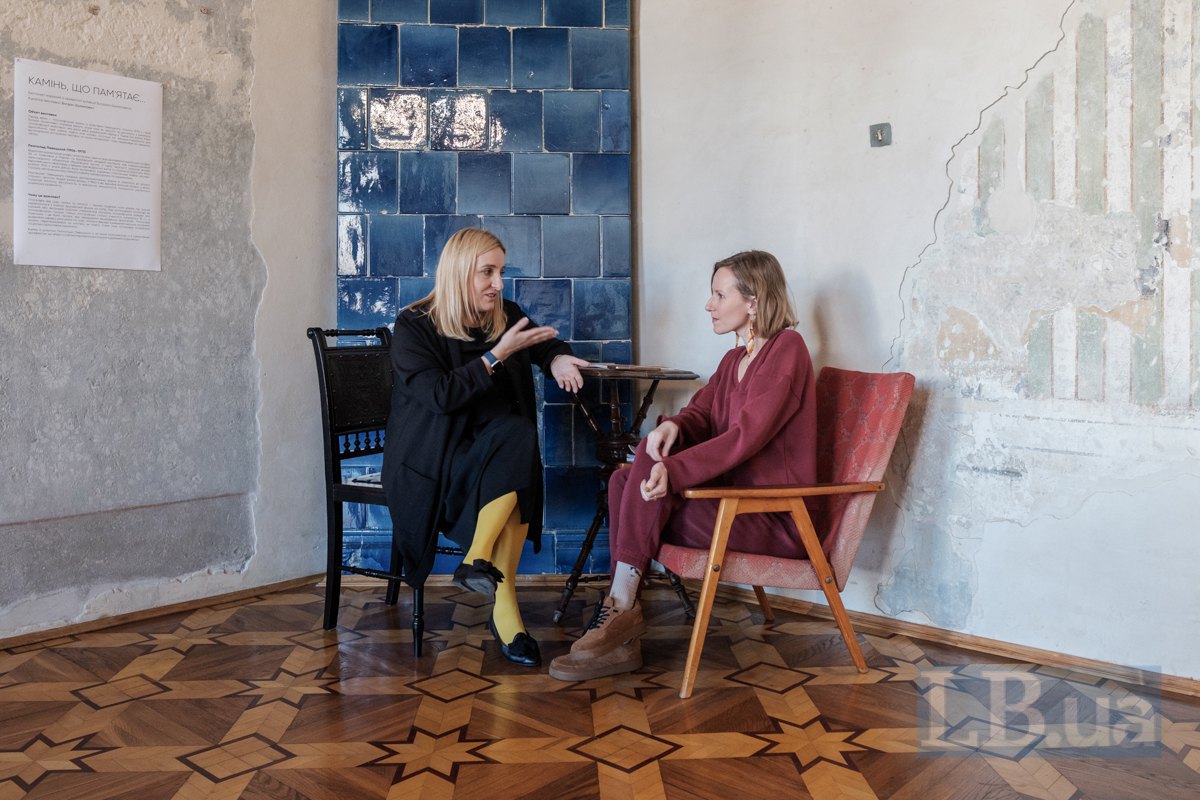
I was recently in Lublin, and they will become the European Capital of Culture in 2029. Is that right?
Yes. And in fact, we are very grateful to Lublin for our experience on the way to the ECoC, because our first application was with them. Now they have applied for the second time — and won. Their programme includes a Ukrainian component. The Institute of Cultural Strategy is its institutional curator. There are various projects, including the one that started it all — a somewhat transformed version of Ukrainian Cross-Section. It is also integrated into Lviv's application. We pay tribute to the history that started it all.
By the way, I was a participant in the pitching of Lublin's application in Brussels. I have an advantage — I know how it works.
It would be organic: Lublin in 2029 and Lviv in 2030.
Yes! It would be a symbolic manifestation of our partnership — how we strengthen each other. They see us in themselves, and we will continue this interaction within our programme if Lviv becomes the ECoC. Contacts and cooperation strengthen us mutually and help us succeed.
Let's return to the competition process itself. What stages has Lviv already gone through?
Two years of active work: dozens of meetings, hundreds of people involved, lots and lots of communication, letters, calls in Ukraine and abroad... The first round is over, and we made it to the shortlist. On 15 September, we sent the final application to Brussels.
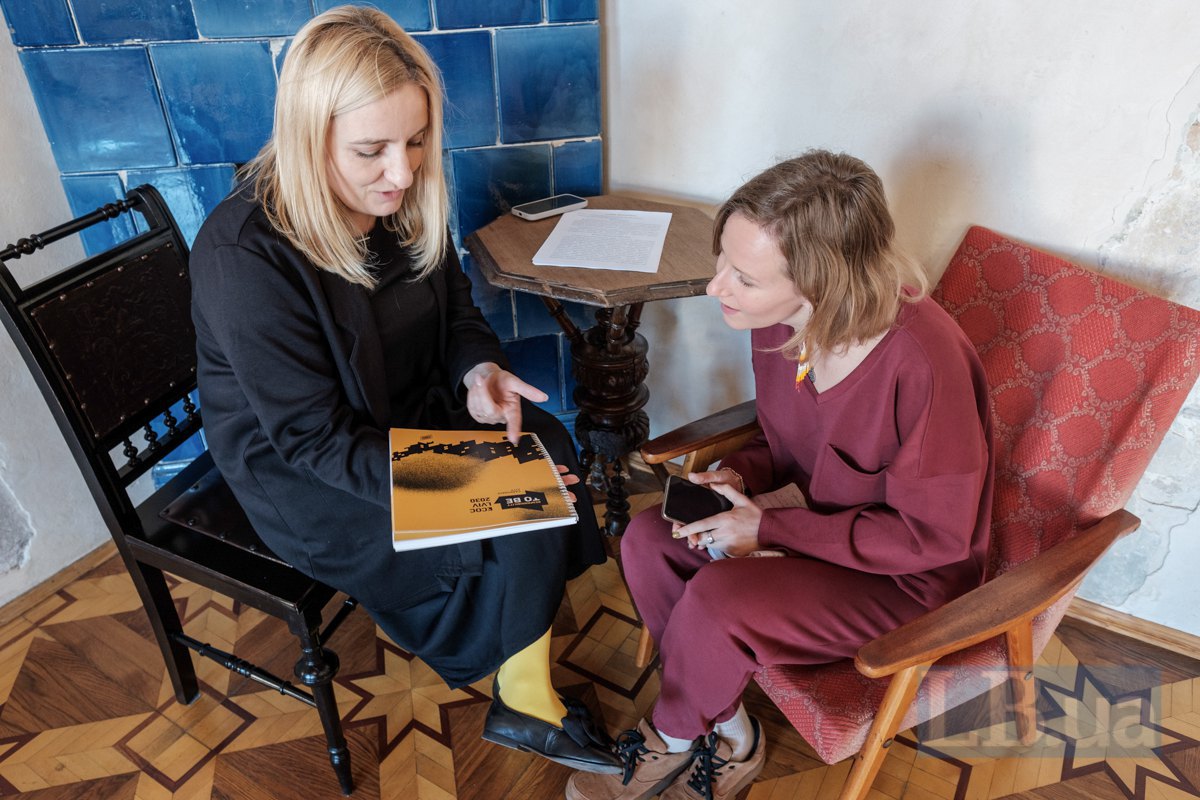
What are the next steps?
According to the procedure, experts will visit Lviv next. Representatives of the competition commission will come to the candidate city and see how it lives. Obviously, it is important to demonstrate the ideas behind the application and the city's ability to implement them, to allow guests to feel the spirit of culture here and now.
After this visit, on 20 October, the final presentation of Lviv's application will take place in Brussels, the so-called pitching. Our team will present the idea to the competition committee and then answer their questions. The next day, the results will be announced at a press conference, which, by the way, can be watched live.
We are also following other cities from EU countries that are currently applying for 2030. For example, the day before yesterday (the conversation took place on 26 September — Ed.), the results of the competition among Belgian cities were announced — Leuven won. So we are observing the processes of others and preparing ourselves.
Let's talk about the intercultural crisis in the EU. There have been many cases where certain cultural practices have been condemned (for example, girls were not allowed to wear Muslim headscarves at school), but at the same time, the EU talks about tolerance. Another aspect is that the Russian language and culture can also fall under these "tolerant messages". Where is the line between saying that this is about values and saying that this is a double standard?
This is a very complex and important question. We understand European values and why they are important to us, but, as you say, Europe promotes and defends them on the one hand, and on the other, it violates them itself.
And about the Russian factor. Let's start with the fact that it is a great challenge for us to present our application with our topics right now. It is about the war and its effects: we cannot escape the context in which we live. I believe that as long as we are physically at war and experiencing this daily pain, we have the right to emphasise: when you say that I should be tolerant of Russians, understand my physical pain and my inability to be in the same room with them — this tolerance must work both ways. Yes, the war will end sooner or later, and there will be dialogue at some point, but from my current position, I have the right not to want to be around this context because it hurts me.
Obviously, the cancellation of Russian culture is already exhausting itself to some extent. We should think more about our own competitive cultural offering, rather than just pushing out what is financed by Russian money in one way or another. We need to fight Netrebko, but we understand that this will not give us the desired result. We need to look at this much more broadly — and now place more emphasis on our own. And the status of the ECoC is precisely an opportunity to showcase our competitive culture, create conditions for its development, highlight it, expand cooperation with others, artist mobility and intercultural dialogue.
The ECoC programme is all about working with diversity and dialogue at all levels. And not only in the context of art and artistic practices, but also on a daily level — for example, how culture helps Ukrainian refugee children adapt and cope with such a major change in their lives as the loss of their home. I think culture is, if I may say so, the tool that should help here.
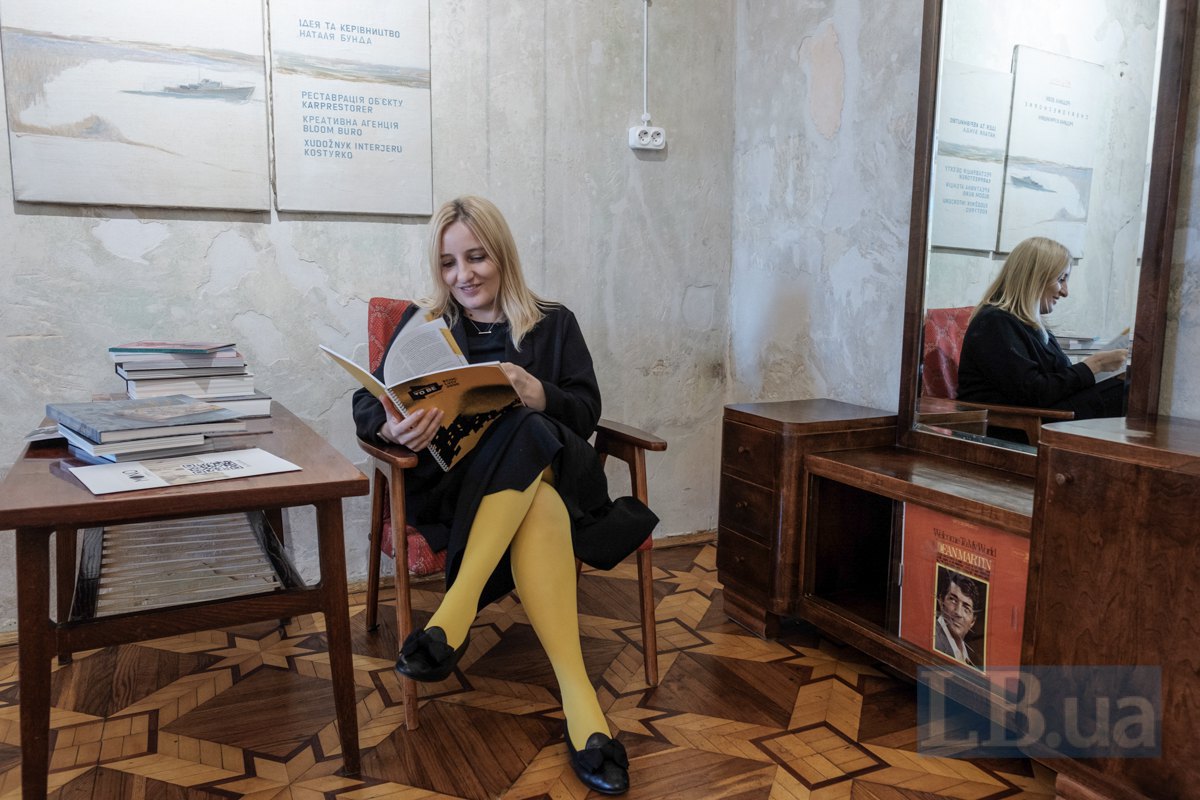
Yes, because as Oksana Zabuzhko said: they save those they know. And culture can provide this irrational recognition, one's own emotional experience. You mentioned Lviv's sister cities, and I am curious about the current state of this institution of sisterhood, because we know how artificially militarised it was in the USSR.
Yes, the institution of sisterhood has its roots there, but with Ukraine's independence and the start of Russia's war against Ukraine, it was rethought in Lviv. Lviv has 31 sister cities. In the last three years alone, we have added seven or eight cities. In 2024, I was at the signing of such an agreement with Tartu. And it happened right on the platform of the European Capital of Culture — Tartu 2024, in the library at the University of Tartu. During the full-scale war, Lviv also signed a partnership agreement at the level of sister cities with Cannes and Turin.
In building the Unbroken ecosystem of humanity, Lviv relies on the support of its sister cities. Cities that want to join in its development join the network by signing memoranda. So now, sisterhood is a living network, and I am a witness to this vitality (smiles).
Let me explain how sister cities work with Lviv in the process of applying for the title of ECoC. When applying for the competition, the candidate city must answer questions about risks and how to deal with them. What were the risks for the world five years ago? They were COVID, climate change, demographic problems, migration, discrimination against marginalised groups; and these were the issues that the competition dealt with. And what do we have now? There is a physical threat of disappearing, and our city is applying for the title of ECoC during a period of war — these are risks of a different level. Previously, perhaps some of the applicants mentioned the war, but more at the level of assumption or image. Now, unfortunately, we are talking about war from our own experience. And we understand that we have to anticipate various scenarios, including one where the situation becomes even more threatening and it becomes impossible to implement this programme from a security perspective.
So we sent a letter to Lviv's network of sister cities: "Friends, the first Ukrainian city is representing Ukraine in the ECoC competition. This is not just a story about Lviv, but about Ukraine. If we find ourselves in an extremely difficult situation, are you ready to support us, to accept certain parts of our programme so that Lviv can still be the ECoC even outside of Lviv?" The responses from Cannes, Tartu, and other sister cities touched me. Almost all of them replied: of course, if the need arises, we as a city, our municipal institutions, are ready to take on Lviv's cultural activities and show Ukrainian culture to the world. This is the essence of sisterhood: to be there not only in moments of joy, but above all when times are tough.
How does Lviv's cultural development strategy take into account the factor of migrants from all regions and, in particular, the presence of other peoples, such as Crimean Tatars and others? How do you work with this?
When we approached the development of a new Strategy for the Development of Culture in the Lviv Community, everything happened very organically. The first city strategy covered the period up to and including 2025, which meant we had to develop a new document, plus in 2024 we are applying for the ECoC 2030 competition. According to its requirements, the city applying must have a profile strategy for the year of the title (in our case, 2030) and beyond. So these were parallel and interrelated processes — working on the new Strategy and applying for the ECoC title.
We have developed a 10-year Strategy. It is quite bold to think about the city's development a decade ahead, isn't it? But at the same time, it is a framework Strategy with a flexible approach. It provides for the possibility of working with it every year, updating certain points according to the situation, and there is a clearly defined procedure for how to do this.
Of course, an important context for the development of the new Strategy was the fact that Lviv has changed. In recent years, the face of the city has been transformed, particularly its institutional landscape in culture. We have welcomed thousands of residents from other regions of the country and dozens of relocated institutions, and this has had an impact on the image of the city in one way or another. And Responsibility to Be, the responsibility to be together, is also about how we change together, how we make Lviv a home for others. Lviv now represents the whole of Ukraine, because here you can meet residents from different Ukrainian cities. We are aware that we have the luxury of living, planning and strategising more than others in Ukraine, although this rear position of the city is rather conditional and offers no guarantees. The projects in Lviv's application for the title of ECoC reflect the priorities and strategic directions of our Strategy and have been developed with institutions from Mariupol, Berdyansk, and Kharkiv. This context is part of our application and the basis on which the 2035 Strategy was developed.
It is worth noting that our Strategy contains some very important points for the cultural sphere. This year, Ukraine adopted its first nationwide Strategy for Cultural Development, in which culture is beginning to be thought of as a component of national security. Unfortunately, this understanding finally crystallised during the war. This Strategy is a general umbrella under which strategic planning can and should take place at the city or regional level, and this national vision can be strengthened, supported and adapted locally.
The Lviv Culture Development Strategy 2035 organically integrates the understanding of culture as a component of security, and we also have the concept of municipal cultural diplomacy. In the context of European integration through culture, we think of the city and its institutions as subjects of cultural diplomacy. The classic view is that only state institutions can conduct cultural diplomacy, but now we see that cities are capable of implementing certain aspects and policies of cultural diplomacy on their own, presenting themselves and their country. And here, Lviv's movement towards the ECoC is part of this municipal cultural diplomacy.
The strategy has been adopted and legitimised, and it is backed by institutions with all the necessary attributes — experience and teams, an engaged environment, and networks of partners in the country and globally. Lviv's network of institutions is one of its powerful forces. For example, the Lviv Organ Hall, which, incidentally, hosted the relocated Luhansk Philharmonic, is a large, growing and successful community. Or the Museum of the Territory of Terror and its director Olha Honchar, whose presence at the international level and in professional networks gives her a voice, visibility and influence. And the Institute of Cultural Strategy, which, through the ECoC, raises the city to the level of representing the country. So strong institutions backed by communities, strong policies that can create strong partnership networks and which, ultimately, are visible beyond them, create space for important dialogue. At the same time, this is a guarantee of continuity and capacity that minimises the political risks that always exist.
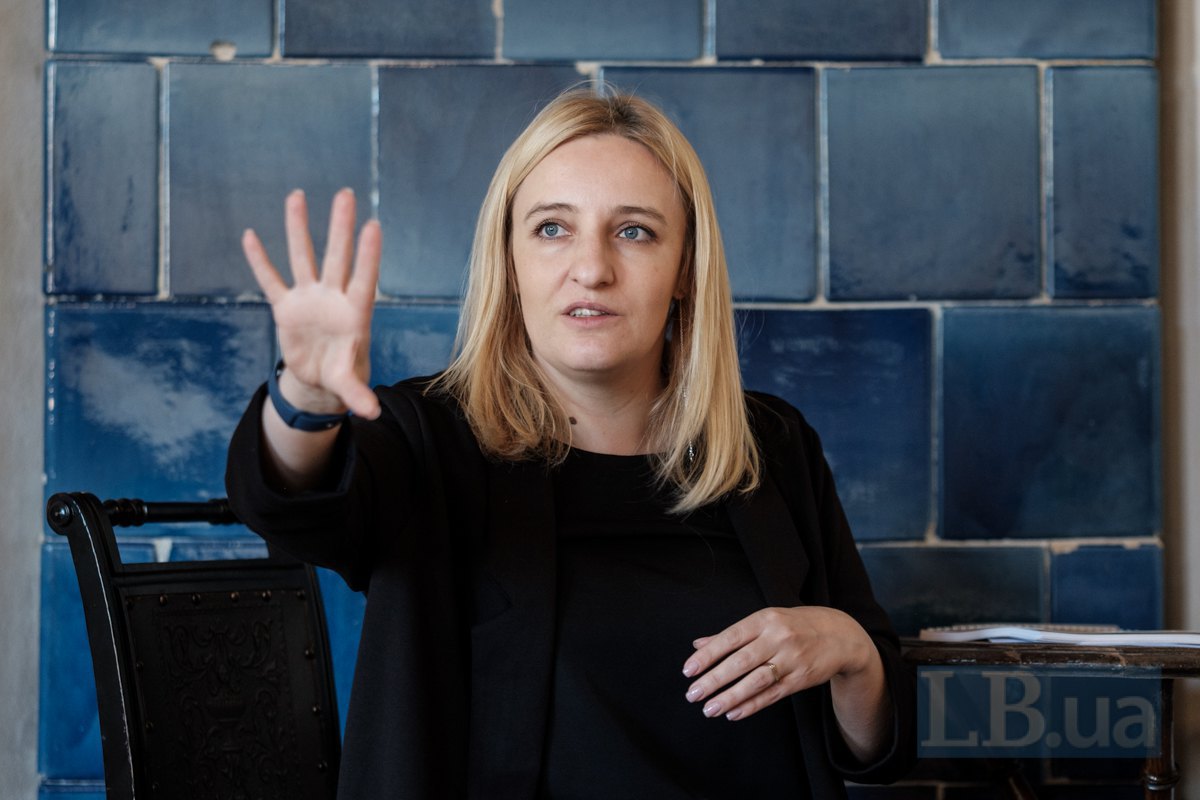
Is there a risk of influencing artists, because they cannot be told what to do and how to implement their works?
Obviously, art cannot and should not be strategised, and political influence on it should be minimal (only to the extent necessary to protect national security). In Lviv, there is freedom of artistic vision and creativity. Of course, city residents can criticise the monument to Franz Xaver Mozart, but this is a discussion, a field for cultural dialogue between people who create and people who, let's say, consume. In Lviv, art has the ability to exist, manifest itself, develop, interact and engage in dialogue.
Tell me, aren't you afraid of such a shift in the cultural space to Lviv? Because the situation in other cities is far from calm (although this is also relative) and it is unknown how they will develop in such conditions? Roughly speaking, doesn't it bother you that many institutions and processes have shifted westward, specifically to Lviv?
I think that security will remain a decisive factor for a long time to come. There will be discussions about "left — didn't leave," "stayed — didn't stay," "went abroad — left Kharkiv for Lviv," as well as two opinions on this. Personally, I do not condemn anyone who left, because it is a matter of safety: if you feel fear, if you worry about your children, you make the only decision possible for yourself.
It is natural: people seek and will seek a safer haven for themselves and their loved ones, as well as for their cause. And if it is important for someone to preserve their cultural institution by leaving a frontline city, then let its new location be Lviv or Rivne, let this institution continue to operate in Ukraine. I am fine with that.
However, at the same time, I cannot say that Lviv currently has, say, a more vibrant cultural life than Kharkiv. To me, Kharkiv seems like a city with incredible energy and vitality. When I see what the Yermilov Centre, the new book fair, the Litmuseum, Oleksandr Savchuk's space and others are doing in those completely abnormal living conditions in Kharkiv, it's impressive! Or how the Art Museum in Odesa works — despite political oppression, Russian bombing and its consequences. Or Kyiv and the Mystetskyy Arsenal. Culture in Ukraine is alive and pulsating. On the contrary, I feel a certain guilt about the calm that generally prevails in Lviv. Our city has a dynamic cultural life, but, of course, since it is less directly threatened, it has a different sense and reflection of time than in frontline communities.
I really want every institution that has found or will find temporary shelter in Lviv or Rivne, Ivano-Frankivsk or Uzhhorod, to ultimately preserve its subjectivity and ability to keep its teams together and create. They, like all of us in general, will emerge from the war with new experiences. I think the Luhansk Philharmonic will return to Luhansk a different institution, just like the other relocated institutions will return to their cities — with new visions, an awareness of their strength, subjectivity, and self-worth. Paradoxically, war, to a certain extent, forces us into many situations in which we can feel and see ourselves in a new light, particularly as strong individuals, and from this position, continue to interact with the world.









